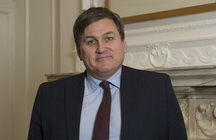Baroness Helic – 2015 Parliamentary Question to the Foreign and Commonwealth Office
The below Parliamentary question was asked by Baroness Helic on 2015-10-26.
To ask Her Majesty’s Government what assessment they have made of the impact of the Middle East Quartet Representative on the prospects for peace between Israel and Palestine; what the identified successes and failures are; and what was the cost to the public purse of supporting the office of the Representative in each of the last eight financial years.
Baroness Anelay of St Johns
The British Government supports the aims and objectives of the Quartet, which has an important role in the Middle East Peace Process through its mandate to mobilise international assistance to the Palestinians and develop plans to promote Palestinian economic development.
Since its inception in 2007, the Office of the Quartet Representative (OQR) has been funded by donations from Quartet members, including the European Commission, EU Member States and the US. Donations are pooled in a trust fund which is managed and administered by the UN Development Programme (UNDP).
In November 2007 the then Secretary for State for International Development approved a one-off payment of £400,000 from the UK to UNDP to help with the costs of setting up the OQR. Other countries also contributed to the set up costs: Norway gave $1 million; the European Commission $2 million; and the US provided IT equipment.
The UK does not currently provide financial support to cover the costs of the OQR. The Department for International Development has seconded staff to the OQR since 2007. Their costs are as follows 2007: £62,850; 2008: £165,313; 2009: £204,830; 2010: £214,440; 2011: £247,213; 2012: £183,462; 2013: £266,088; 2014: £115,738; and 2015: £26,875. The Foreign and Commonwealth Office also seconded two full-time members of staff to the OQR from 2007 until 2013. We do not hold a record of the costs of these secondments.


